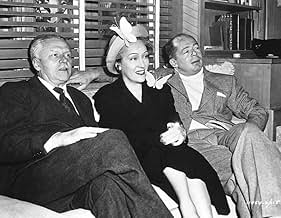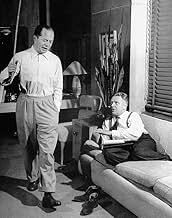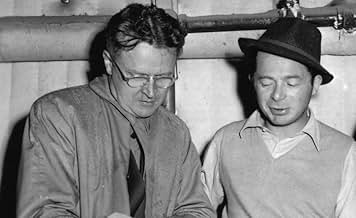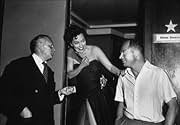Charles Brackett(1892-1969)
- Writer
- Producer
Charles Brackett, born in Saratoga Springs, New York, of Scottish
ancestry, followed in his attorney-father's footsteps and graduated
with a law degree from Harvard University in 1920. He practised law for
several years, before commencing work as drama critic for The New
Yorker (1925-29), in addition to submitting short stories to The
Saturday Evening Post. In 1932, Brackett left for Hollywood as a
screenwriter. He was signed by Paramount primarily on the strength of
his novel "Week-End". Brackett remained at the studio until 1950,
doubling up as producer from 1945.
During his tenure at Paramount, Brackett became part of one of the most celebrated screenwriting partnerships in the motion picture business, alongside Billy Wilder. They were eventually dubbed by Life Magazine as "the happiest couple in Hollywood". Despite having very different personalities and arguing incessantly -- Wilder being the more extroverted and cynical, while Bracket was, to quote Gloria Swanson, 'quieter, more refined' -- their collaboration endured until 1951, spanning fourteen motion pictures. Many of their most popular hits, such as Ninotchka (1939), Ball of Fire (1941) and The Lost Weekend (1945), were noted for their intricate scripting and witty, sardonic dialogue. The culmination of their efforts was Sunset Boulevard (1950), which won an Academy Award for Best Writing, Story and Screenplay. Following this, the team split up at the peak of their success, each going their separate ways.
Brackett moved on to work under contract at 20th Century Fox for the next eight years. With Walter Reisch, he co-wrote the screenplays for Niagara (1953) and Titanic (1953), winning his third Oscar for the latter. He also produced the superior western Garden of Evil (1954), the historical drama The Virgin Queen (1955) and the lavish musical The King and I (1956). Brackett retired due to illness after producing State Fair (1962).
During his tenure at Paramount, Brackett became part of one of the most celebrated screenwriting partnerships in the motion picture business, alongside Billy Wilder. They were eventually dubbed by Life Magazine as "the happiest couple in Hollywood". Despite having very different personalities and arguing incessantly -- Wilder being the more extroverted and cynical, while Bracket was, to quote Gloria Swanson, 'quieter, more refined' -- their collaboration endured until 1951, spanning fourteen motion pictures. Many of their most popular hits, such as Ninotchka (1939), Ball of Fire (1941) and The Lost Weekend (1945), were noted for their intricate scripting and witty, sardonic dialogue. The culmination of their efforts was Sunset Boulevard (1950), which won an Academy Award for Best Writing, Story and Screenplay. Following this, the team split up at the peak of their success, each going their separate ways.
Brackett moved on to work under contract at 20th Century Fox for the next eight years. With Walter Reisch, he co-wrote the screenplays for Niagara (1953) and Titanic (1953), winning his third Oscar for the latter. He also produced the superior western Garden of Evil (1954), the historical drama The Virgin Queen (1955) and the lavish musical The King and I (1956). Brackett retired due to illness after producing State Fair (1962).
































